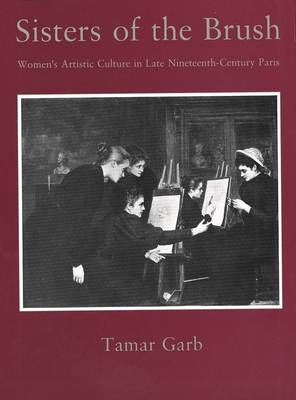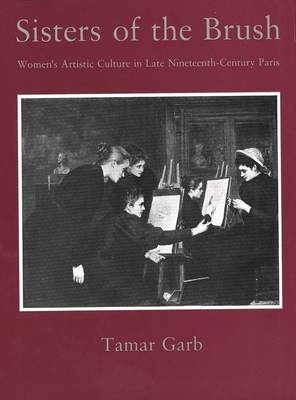
- Retrait gratuit dans votre magasin Club
- 7.000.000 titres dans notre catalogue
- Payer en toute sécurité
- Toujours un magasin près de chez vous
- Retrait gratuit dans votre magasin Club
- 7.000.0000 titres dans notre catalogue
- Payer en toute sécurité
- Toujours un magasin près de chez vous
Sisters of the Brush
Women`s Artistic Culture in Late Nineteenth-Century Paris
Tamar Garb
Livre relié | Anglais
122,45 €
+ 244 points
Description
The Union of Women Painters and Sculptors was founded in Paris in 1881 to represent the interests of women artists and to facilitate the exhibition of their work. This lively and informative book traces the history of the first fifteen years of the organization and places it in the contexts of the Paris art world and the development of feminism in the late nineteenth century. Tamar Garb explores how the Union campaigned to have women artists written about in the press and admitted to the Salon jury and into the prestigious Ecole des Beaux-Arts and describes how the organization's leaders took their campaigns into the French parliament itself. Although the women of the Union were often quite conservative politically, socially, and stylistically, says Garb, they believed that women had a special gift that would enhance France's cultural reputation and maintain the uplifting moral-cultural position that seemed in jeopardy at the turn of the century. Focusing on the developments that made the prominence of the organization possible, Garb discusses the growth of the women's movement, educational reforms, institutional changes in the art world, and critical debates and contemporary scientific thought. She examines contemporary perceptions of both art and femininity, showing how the understanding of one affected the image of the other. This book reverses conventional accounts of late nineteenth-century French art, offering a new picture of the Paris art world from the point of view of a group of women who were marginalized by its dominant institutions.
Spécifications
Parties prenantes
- Auteur(s) :
- Editeur:
Contenu
- Nombre de pages :
- 216
- Langue:
- Anglais
Caractéristiques
- EAN:
- 9780300059038
- Date de parution :
- 27-04-94
- Format:
- Livre relié
- Format numérique:
- Genaaid
- Dimensions :
- 201 mm x 264 mm
- Poids :
- 861 g

Les avis
Nous publions uniquement les avis qui respectent les conditions requises. Consultez nos conditions pour les avis.






